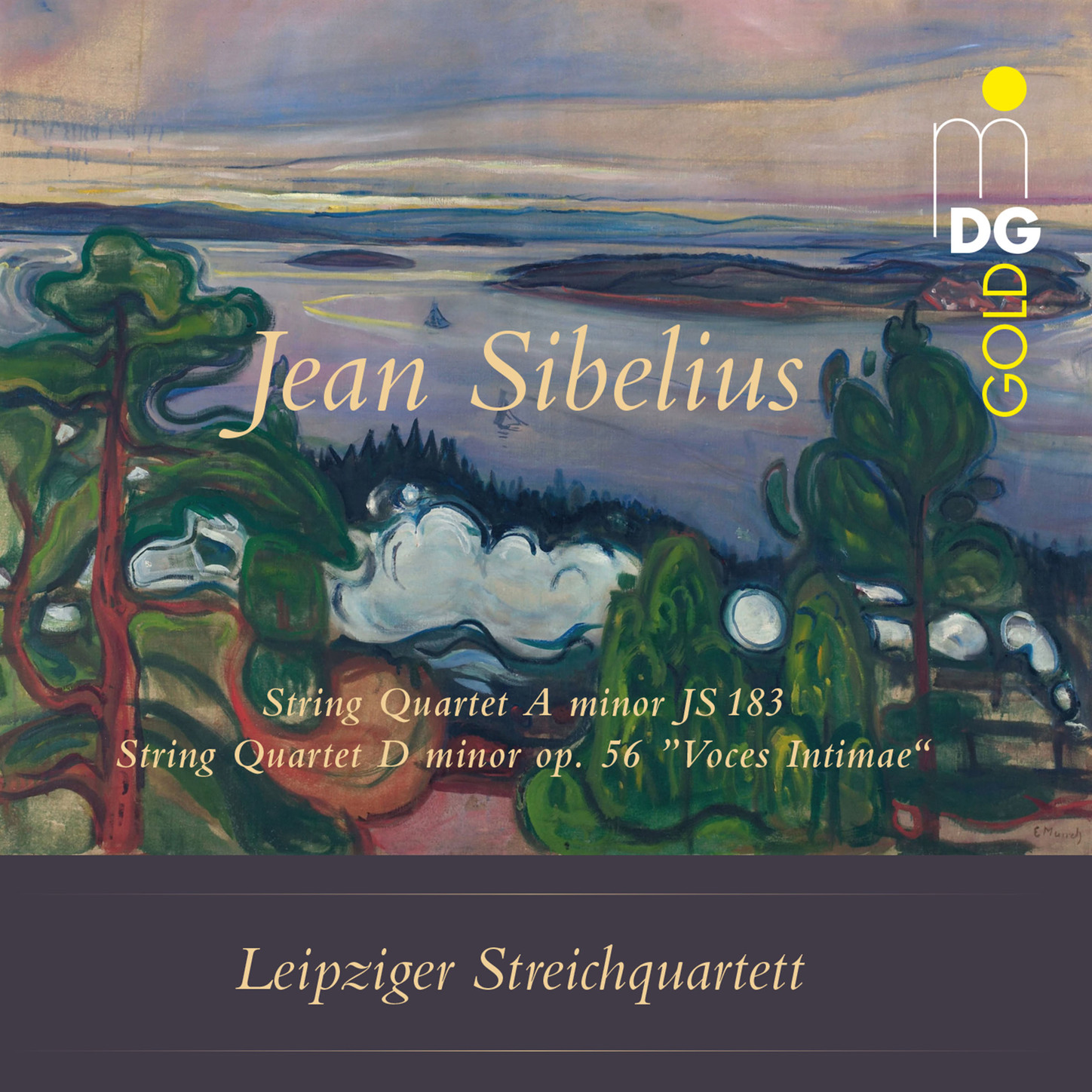Intimate Voices
Sibelius in Germany
When I hear the string quartets of Jean Sibelius, I just can't get over their furious, motoric attributes. It is as if the composer has all of this nervous energy, and he communicates it through his music.
Yet, I don't remember this aspect in his symphonies. This element seems reserved for his quartets, including the B-flat Major Quartet not on this program.
Of course, when Sibelius does allow the instruments to hold out or pause, they become special moments, especially as they appear in String Quartet in D minor 'Voces Intimae'. The D-minor Quartet is the most oft played of the composer's quartets, and indeed it feels remarkable. While there are many modal harmonic settings in it, I don't sense an intended folksiness, nor do I think of its movements as a series of character pieces either. Sibelius is instead an expert at giving the listener a real 'absolute' musical experience.
I am not a fan of rampant unison strings in quartet music, but Sibelius does it all of the time. How he approaches unisons and leads out of them into harmony are a curiosity to me. He is certainly one of the more successful using the unison texture to these ears, and it always sounds purposeful.
With all of the musical motion mentioned earlier, I don't find Sibelius particularly imitative in a contrapuntal way, although this later quartet bears small bits of these qualities. His motives are certainly strong, but how he develops them is not always straightforward, yet always identifiable. I like how the Leipzig Quartet allows portamento at the very opening of the quartet, an effect which rarely returns amongst these fine players.
The soulful middle movement is the prize centerpiece of the work, where Sibelius dumps so many amazing, heart-rending musical ideas into that section alone, but all of the five movements have their own singular moments. Otherwise, the light, skitterish quality of the second movement and the heavy trudging of the fourth are some of the most characterful. Altogether, the movements seem drawn together by an inherent emotional quality rather than any particular musical content or substance.
The String Quartet in A minor is the student work, although much more defined and accomplished compared to the early E-flat Major Quartet, a trifle of a composition. Again, it is the constant motion which is most apparent to this listener. Despite the minor key, this is a rather dreamy work, mainly in a sincere, sweet, Romantic way. I never sense any particular dread or melancholy, although the modal landscape is subtly rustic at times. The A-minor Quartet's character is less firmly etched than its later brother, but time may endear it more to me on a more familiar basis.
Where in their Bruckner recording, I never sensed the Leipzig Quartet felt anything for the music, regardless of their warm, rounded tone and excellent balances. Here in Sibelius, it is a horse of a different color. You can hear them building up a palpable electric concentration in the final movement of the D-minor Quartet, and their sense of weight and attack is at times frightening, and others heavenly.
I could easily put this recording as my favorite of Sibelius' masterpiece quartet, for their dark, woodsy tone opposite a willingness to tear into the music emotionally is terrific here.
Works
String Quartet in A minor, JS 183 (33.39)
String Quintet in D minor 'Voces Intimae', op. 56 (31.21)
Performers
Leipzig Quartet
Conrad Muck, violin
Tilman Büning, violin
Ivo Bauer, viola
Matthias Moosdorf, cello
Label: MDG
Year: 2016
Total Timing: 65.13
A full Sibelius string quartet program isn't as common as one might think. Certainly, there are plenty of the composer's last quartet.
And yet, this all-Sibelius program is an absolute winner. While the prize goes to the music, it is the Leipzig Quartet who leap upon the music in an engrossing way.
Find more Sibelius recordings HERE!



Comments
Post a Comment